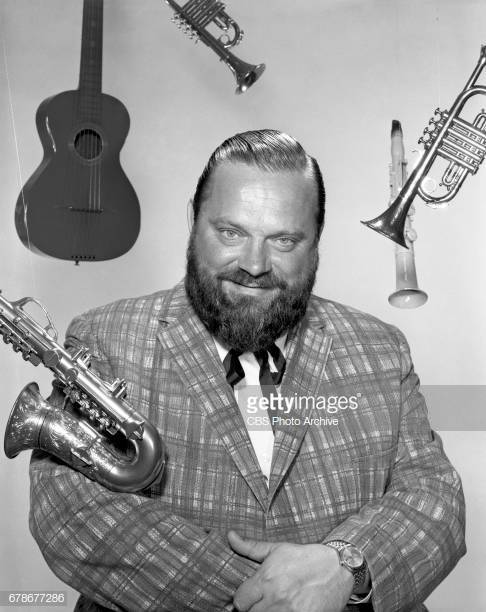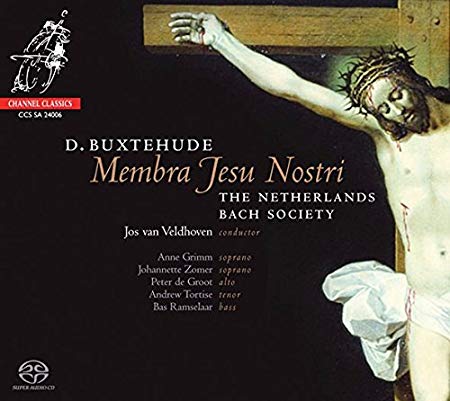-
Posts
13,205 -
Joined
-
Last visited
-
Donations
0.00 USD
Content Type
Profiles
Forums
Events
Blogs
Everything posted by Larry Kart
-
"To that end, and referring back to Gould and his relationship to teh studio, does anybody know how he worked with his engineers on his miking? Some of what I hear is not just the performer, it's the sound of the piano as recorded vs how it was being played, if that makes any sense." Yes, it does make sense, and I recall reading a whole lot at one time at about how radically Gould tweaked his pianos and directed the engineers to tweak things at their end of the sonic chain. What exactly was going on at both ends I no longer recall, but I'm fairly sure that it was in the name of control, in terms of attack and duration, of every note. BTW, when you say "avant garde," it's long been a commonplace that the replacement in the early 20th Century of romantic modes of interpreting Bach with a more "objective" approach was an offshoot of then-contemporary trends in musical modernism in general and not a genuine, historically defendable return to the way Bach and other Baroque music actually was played (to the degree that can be known). BTW, you don't hear any "pecking" in Gould's French Suite 5 Allemande?
-
As Jim says, and Alexander Hawkins also says or implies, it's not that Gould always emphasizes the entrance of lines, it's that he arguably over differentiates those lines instead of blending them, In that regard, it's interesting that in both of the harpsichord performances I posted, I think there is a fair bit more such blending than there is in Gould's performances, even though one might think that different lines on a harpsichord would sound more differentiated than they would on a piano. It's Gould's rather 'pecking" articulation that makes for much of the difference. Again re: Gould's pecking, compare his French Suite 5 Allemande (see post no. 3 above) to this reading on piano:
-
Or David Cates (above) and Gould (below)
-
Charles Rosen, in implicit contradiction to much of Gould's approach: "It cannot be sufficiently emphasized that the keyboard works are written above all for the pleasure of the performer. One small detail will show to what extent this aspect of musical life changed within thirty years of Bach's death. When Mozart rediscovered the music of Bach and began enthusiastically to compose fugues himself, he said that fugues must always be played at a slow tempo, as otherwise the successive entrances of the theme would not be clearly heard. Nevertheless, it is remarkable how often Bach tries to hide the entrance by tying the opening to the last note of the previous phrase, how much ingenuity he has expended to avoiding articulation, in keeping all aspects of the flowing movement constant. Yet, though many of the entrances fugues are ... inaudible, there is one person -- the performer -- who is always aware of them. If in no other way, he can always sense them through his fingers.... "The very reproach often leveled at the keyboard -- its blending, even confusion, of separate contrapuntal lines --made it the ideal medium for Bach's art. This inability of the instruments to make in practice the clear-cut distinctions that were made in theory embodied the tendency toward a completely unified texture and the powerful vertical harmonic force that characterized sxo much of the music of the early eighteenth century ... Once the intimate setting of this art is accepted, many of the problems of playing it either disappear or are seen in a new light. Most of Bach's keyboard works were writtten to played for oneself or a few other musicians; some of it was written almost as much for meditation as for listening. Many of the more complex details can be appreciated fully only by the performer -- they can be heard, but their significance can never be entirely grasped until one has felt them under one's fingers. This implies that much of the calculation of dramatic effect necessary for public performance was never intended for the greater part of Bach's keyboard music -- except in the large organ works it tends to be felt as ... an intrusion of the performer. Even the shaping of structure and its elucidation are not crucial, and performances of a Bach fugue in which the theme is consistently emphasized to the detriment of the other voices can only be a travesty of a work whose chief glory lies in the relation of the voices to each other and their interaction...." (My emphases) In other words, if you credit Rosen's take, Gould's separating his hands and lines almost as if it's two pianos is more or less his attempt to make evident to the listener relationships that the performer already hears because he knows, in his fingers, that they are there. How one feels about Gould's Bach is for each of us to say; I was impressed by its sheer liveliness way back when but pretty much can't stand it now, in the light of many other Bach performances that are no less lively but don't throw those fugal entrances in one's face and articulate every voice. Compare Gould: And Blandine Rannou:
-
Wild!
-
A good one. From a 1978 date that was originally on two Aviva LPs, then semi-combined (though without this track) on a Stash CD, "Truly Wonderful." About as "live" a live date as could be imagined. Forrest, two years before his passing, was in fine form, as was the whole band.
-

Lee Morgan Film
Larry Kart replied to danasgoodstuff's topic in Jazz In Print - Periodicals, Books, Newspapers, etc...
Finally saw it, and I agree with Jim's take above. One question -- the woman, I think her name is Judith Johnson, who was Lee's friend (or "friend," though she certainly seems like a real friend) and who drove him to Slugs's that night, was she the "other woman" that Lee was seeing? If so, that doesn't fit my sense of what was going on, which was that Lee had been getting tired of the fact that Helen was 14 years older, that her relationship to him was (or in large part had become) protective and maternal, and that he had found some younger woman. But Johnson seemed like a middle-class version of Helen, more or less another protective mother figure and, unless I'm confused, of about Helen's age. Also, FWIW Johnson says that thanks to drug use, etc., Lee's sexuality was pretty much non-existent in his later years. If Johnson, not some anti-Helen type, was indeed the other woman in the triangle, somehow that makes things even more tragic. -

Artist's Lack of Fashion Sense Interfering with the Music
Larry Kart replied to Teasing the Korean's topic in Artists
No, it never happens to me. Oh wait -- Al Hirt's fashion sense impeded my appreciation of his music. -
https://en.wikipedia.org/wiki/Solfeggietto It's undoubtedly a piece Bud played as a young piano student, like (conservatively) many hundreds of thousands of other young piano students down through the years. Wilbur Ware straight out of the gate (and then Johnny Griffin) on "Woody n' You":
-
BTW, how many know that the Bach in "Bud Plays Bach" is not J.S. Bach but a C.P.E. Bach piece?
-
Jim did, by posting that particular performance and by describing its virtues and flaws as he heard them, and you did by responding to the contrary in a reasonable manner. To me, this took the discussion a bit beyond "Some people didn’t like Rouse with Monk. Some did."
-
Jim's shrewd post was IMO a very good reason why. Again IMO, he precisely and even empathetically nailed why Rouse with Monk may not be a picnic and what those who do find him to be picnic with Monk need to think about and respond to -- which you then did. A perfect instance, at both ends, of good criticism in action. It's not a matter of right and wrong so much as of putting right there on the table what perhaps needs to be thought of. Also, as we all know or should know, nothing of this sort ever really gets "settled."
-
Oscar Pettiford (cello) on "Now See How You Are," with Mat Mathews: Ira Sullivan (on tenor) with Red Rodney on "Ubas":
-
Art Pepper and Warne Marsh on "All the Things You Are" (don't miss the exchanges toward the end):
-
Paul Desmond's solo on "Blues In Time:" Jackie McLean's solo on "Help": Clifford Brown's solo on "I Can't Get Started": Albert Stinson's solo on "My Joy" (begins at about 4:50): Johnny Dodds on "Perdido St. Blues" (sober trumpeter George Mitchell too):
-
Art Pepper's solo on "Besame Mucho": Sonny Rollins' "St. Thomas":
-
Miles' pleading, storytelling solo on the quintet version of "When Lights Are Low," with its occasional suggestions that Miles' melodic sense of the time had a kinship with that of Richard Rodgers -- e.g. the way Miles exits the solo. Pres' solo on "Taxi War Dance" (and Dickie Wells' solo too): Monk's solo on "Little Rootie Tootie":
-
Picked it up a while ago. Especially like him on soprano. My friend Bill Kirchner, a frequent sub with the Vanguard Orchestra back in the day, said that Thad wrote so many soprano-lead passages because Richardson (and then later on Jerry Dodgion) could really play them.
-
Sure, they've been around (I have them on the latter CD), but did many of us here know of them? I thought, perhaps not.
-
Everyone plays their asses off, especially Chu Berry (and Roy, too ... and the ensemble work):
-
In the "Viva Prado" clip that was Art Pepper, right? And who was the tenor player?
-

What Classical Music Are You Listening To?
Larry Kart replied to StarThrower's topic in Classical Discussion
-
Don't know if I've told this story before, but when I was Down Beat's assistant editor in 1969 and Dan Morgenstern was the editor, with both of us having votes in the DB Hall of Fame critics poll version, we discovered that Pee Wee Russell, who had died that year, and Jack Teagarden, who had died in 1964, were just a few votes apart when all votes except our own (yet to be cast) votes had been tallied. At that time, maybe still today, each critic had three votes in each category of the poll, and the votes were weighted in some way, depending on whether one had assigned a musician to first, second, or third place on one's ballot. Don't know which of us came up with the idea, but it occurred to one of us that because the vote totals for Pee Wee and Teagarden were so close, because neither man might not make to the top for a good while (Pee Wee 's vote total having risen a good deal that year in large part because of his recent death), and finally because Pee Wee and Teagarden were such a natural pair to enter the HOP together, we decided to adjust our votes so that Pee Wee and Teagarden would tie for the HOF that year and enter together.
_forumlogo.png.a607ef20a6e0c299ab2aa6443aa1f32e.png)


